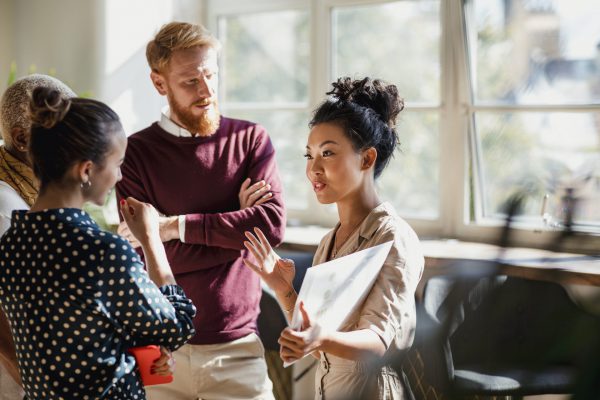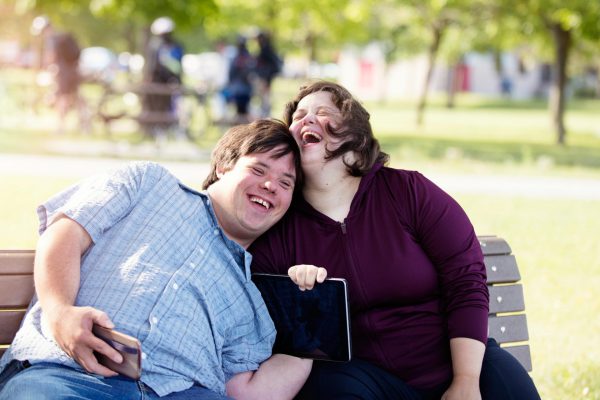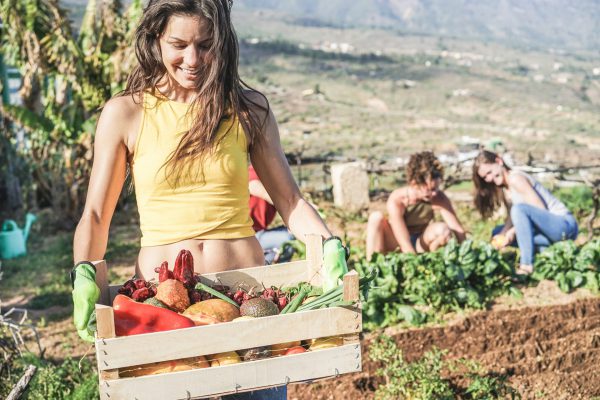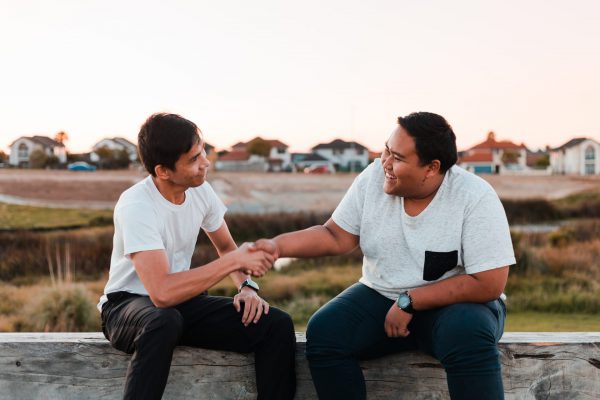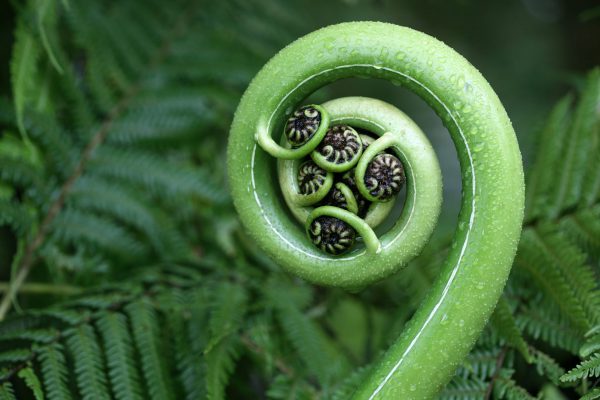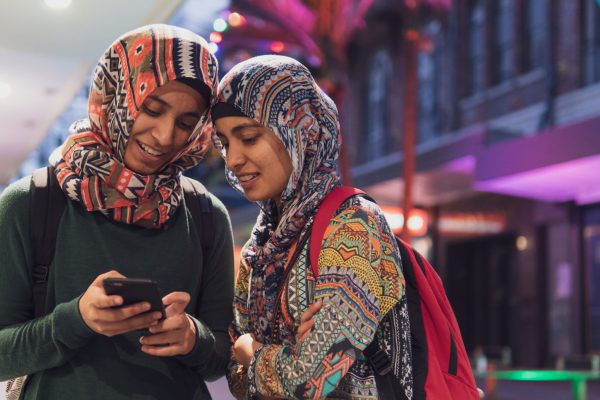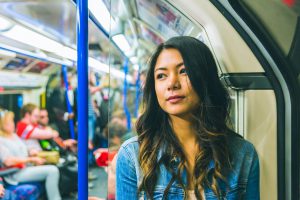Connect with me
-
Being open to connecting
For new relationships to form, you need to be open to connecting with others. Participants spoke about how actions can tell us if people and groups are open to connecting: from a stranger welcoming us, to an event, to a new member of a community taking steps to reach out and make the first connection.
Being in a context where we listen to one another. Mutual respect and openness.
-
Being in a context where we listen to one another. Mutual respect and openness.
-
We promote a very inclusive ethos in our club. Nobody should be sitting alone, if you see that, go and find something to communicate to them.
-
You say Hi and the conversation will last for an hour. My experience in [small South Island town] at a Christmas event, they came to us and ask our details and were eager to know about ourselves and India. It lasted for around 45 minutes ... [these were] total strangers.
-
I feel like I belong anywhere and everywhere. I think it is my personality, I find it easy to connect. In the area where I live, our community is really connected, and we all share this shitty ugly hall that we all use.
-
When we came here about 15 years ago, I particularly sensed a community. After a few weeks someone from [town] picked us up and invited us to dinner. He made a habit of this – picking up strangers who his family didn’t know. He introduced to a lot of the Hawea community, and a whole bunch of people working on sustainability. Went on for many years.
-
-
A place that fits me
Having places where you feel like you fit can help you feel belonging. Participants spoke of their connections to land, sea, and how they feel belonging, community and connection in natural environments. They also spoke of how they find belonging in human-created places, like cities and neighbourhoods, through being welcomed by and connecting with people who live there.
There is an element of spirituality and there’s something about the Central Plateau that is deeply spiritual, especially the water.
-
There is an element of spirituality and there’s something about the Central Plateau that is deeply spiritual, especially the water.
-
One thing that joins all people is our connection of the earth that we live on. It’s been a central part of my life. I like to be around people who care about the environment and ecology.
-
Being in the bush in Dunedin made me feel emotional, I felt connected there.
-
Things that happen in this area are a lot different from anywhere else. We have a special place and the marae.
-
I don’t live on my whenua, my whanau are from Taranaki. I never lived on my whenua. I live in Porirua, I consider it my turangawaewae. My sense of belonging does relate to where I am physically.
-
I feel really lucky to live here. We often use that word - turangawaewae - and one of our friends gave us a Māori name - the place that worships us. I could ring anyone of the local phone list and anyone would turn up if I asked for help.
-
-
Sharing what we have
Sharing resources with others can help you connect and build trust. Participants spoke most often about sharing food and how this simple act helps to create a connection. They also talked about sharing ‘what we have’ - assets like creativity, skills, and time and simply listening. Giving back, or ‘returning a favour’ were also identified as ways to continue building relationships.
[Our community] we’re all working together, non-hierarchical, socialist, and based on democratic principles, built on Human Rights.
-
[Our community] we’re all working together, non-hierarchical, socialist, and based on democratic principles, built on Human Rights.
-
One of the ways we connect, is over food. That is where I felt I connection with other families, bring a plate I love this concept. New coming from my culture, we usually cook for all.
-
Samoan community - my partner - they have an open door policy of unconditional love, to share food, to sing together. We underestimate that in the mainstream system. We are missing the energetic connection.
-
Islamically, I must look after my neighbours to have a good relationship. I [would] struggle with not knowing my neighbours.
-
I do a lot of art, murals. When I put my contribution somewhere, it makes me feel like I belong. It’s because I want to give back.
-
-
Eye contact and smiling
Something as simple as making eye contact and smiling can have a positive effect on you. Participants mentioned this often, especially new migrants who saw this as unique to Aotearoa New Zealand. They spoke about the impact of smiling at strangers, and strangers smiling at them said so much, without verbally speaking.
A smile is a wonderful thing, it opens doors.
-
A smile is a wonderful thing, it opens doors.
-
We have a smiling relationship (two women).
-
Council has created some great community spaces. Living in a more attractive town, lifts the spirit in terms of our environment. Still some of that old school style of helping each other out. Lots of smiling and waving. Helps you feel like you belong.
-
NZ generally seen as a friendly culture, was in the UK for a short while, which was different, as he feels more “social obligations” here in NZ e.g. be friendly and smile at people. Not like that overseas, people don’t talk to strangers.
-
Something very different in New Zealand, everyone has smiling face to strangers.
-
NZ overall having a good culture, smiling at strangers.
-
-
Te reo Māori
Te Reo has been expressed as highly valued by both Māori and non-Māori. It is seen as a foundational link to embracing and understanding Māori culture and a celebration of what is uniquely Aotearoa New Zealand.
When I hear my local language [Te Reo] being spoken it gives me a nice excited feeling, sense of connection. So good.
-
When I hear my local language [Te Reo] being spoken it gives me a nice excited feeling, sense of connection. So good.
-
After March 15th, I thought of how special it was to hear waiata - I saw that there is striving to make Te Reo more normalised. Even though we have a long way to go, I am really proud to hear Te Reo Māori being spoken by our leaders, our Prime Minister, politicians, media and see the use of tikanga. My motivation for life increases just through the acknowledgement of Te Reo in media, in society.
-
Language [te reo Māori] is a huge way of connecting. When I hear my local language being spoken it gives me a nice excited feeling, sense of connection. So good.
-
A few clients that I have that are Māori speakers, I have the Irish language, that’s been a nice connecting point. Teaching me Māori language and teaching them Irish language.
-
When people are being aware and considerate of my needs. E.g. language, culture.
-
-
NZ Sign language
The impact of making sign language an official language of Aotearoa New Zealand has helped the deaf community feel valued and included. Participants shared how the awareness and access to sign language is crucial for their community to feel belonging. They also spoke about the importance of being together as the deaf community - how spending time together increases learning and belonging.
Deaf people have to fight and fight for their rights. Sign language became an official language in '06 and that was a cause for celebration. English, Māori and sign language became official in law and that made us so happy.
-
Deaf people have to fight and fight for their rights. Sign language became an official language in '06 and that was a cause for celebration. English, Māori and sign language became official in law and that made us so happy.
-
What happened before that, there was lots and lots of red tape to get through. Jacinda Ardern got the job, all the red tape disappeared, interpreters happened. Sign languages one of the 3 official languages in NZ since 2006.
-
That’s what I’ve tried to encourage that myself. Knowing the feeling of growing up hard of hearing. Just accepted that, for example, when I was just starting out learning sign language, just accepting that I was learning. Like us all sitting in a circle is really good for being inclusive of deaf people. Deaf culture sort of thing. Face to face is common, being clear. Being accepting that I was learning the language.
-
In 2017 they had a Disability Matters conference here, all of these people properly diverse to wheelchair users, blind, deaf. Sign language interpreters, people checking access. And “what works for you? what works for you? how can we make this happen?” That was an eye opener as to how we do inclusion.
-
I went to community counselling [after giving birth], got help. I have a lot of niche things I belong to – deaf children, depression group.
-
-
Access to multiple languages
Having space to speak, learn and maintain language is important for inclusion and belonging. Participants shared the connection of language to culture and heritage, and how opportunities to learn languages, especially for children of migrants, help them feel connection and belonging. Participants with English as an additional language felt included when they were given space to practice and gain confidence.
[xx] school embraced community languages and gave our kids an opportunity to taste various languages including Tamil. Would like to see this in other schools too, so that Tamil kids feel included in the education system.
-
[xx] school embraced community languages and gave our kids an opportunity to taste various languages including Tamil. Would like to see this in other schools too, so that Tamil kids feel included in the education system.
-
If I can speak English, I feel like I belong. Yesterday a man came to fix the fireplace, and I could speak small talk and he could understand. I thought no one could understand my accent, but he could. If I go to a shop, saleswomen are very nice and talk to me. When I go to the doctor, the nurses are very nice, they speak to me and ask me questions, and this makes me feel like I belong. The language, the friendly people.
-
When I have a conversation with my team [to practice English] or other people, [it] was good for me. And also for my kid. My kids feel bad in NZ, they say after 2 years, they want to go back. When they accept that they want to study in NZ, then I found it [i.e. found belonging].
-
I’m Japanese, my mother language [is] Japanese. When I talk in Japanese, it’s my culture. Talking Spanish, hearing Spanish, I feel very comfortable. When I gather with Latin people, [I am] very comfortable hearing Spanish.
-
It was through the disability community that I was able to take the Samoan language course.
-
There are a few Spanish speakers here, and they are around 20, 25 years old and they are not really people I spend time with.I have one good friend, Carlos, he is 65 years old. He been here 40 years. We talk in Spanish. But not really many people speaking Spanish here. But now with social media, I can keep in contact with other people in Spanish. But I focus my energy on my daughter.
-
